Washington, D.C.—On day 38 of the federal government shutdown, U.S. Senator John Curtis (R-Utah) fielded questions from constituents during a virtual townhall attended by over 800 individuals. The discussion covered topics including Social Security reform, energy, and federal authority on tariffs and public lands. authority on tariffs and public lands. Curtis emphasized the need for bipartisan cooperation, transparency, and realistic reforms.
Click here or the image above to watch the townhall
Curtis outlined several of his top legislative efforts, including the Fix Our Forests Act, a bipartisan bill aimed at improving forest management and reducing wildfire risks. He also emphasized the need for increased bipartisan cooperation and reaffirmed his commitment to addressing national spending and reforming the federal budget process, pointing to his proposed legislation that would prevent future shutdowns.
On preventing future government shutdowns:
Question: What can you do to meet budget deadlines in the future so temporarily funding the government isn’t necessary? (Lisa, Ogden)
Curtis: I have a bill that is brilliant, in my own opinion, and would solve all of this. . . My bill is remarkably simple: it simply says when you do an appropriation, it doesn’t expire until you do the next appropriation, meaning that would always stay active. You can never go into a shutdown, and until there’s enough pressure to do a new appropriation, that previous one stays in place.
On protecting the Senate Filibuster (60-vote threshold to pass legislation in the Senate):
Question: What is your view on breaking the Senate filibuster to move forward on a [continuing resolution] and an end to the government shutdown? If against a break in the filibuster, what is the path forward you propose to end the shut down? (Todd, Provo)
Curtis: A lot of [senators] feel strongly that we need to keep that 60 vote threshold, and I’m one of them.
On ensuring SNAP benefits during the government shutdown:
Question: Will you encourage the Trump Administration to use available funds to fully fund SNAP benefits for November? (Ella, Provo)
Curtis: Yes, of course. I think we all will. The worry is, there are a number of questions about, are the funds adequate, how long will the funds go and where do these funds come from. And so, I know the courts were weighing in on what President Trump could use and what he couldn’t use.
I don’t know anyone that does not want to do everything possible to make sure we’re meeting those SNAP benefits, but at some point, as the shutdown goes on, we run out of those options as well, which is just one of the reasons why shutdowns are bad idea to begin with.
On the sustainability of Social Security:
Question: When will the issues with Social Security be addressed? Do you see this happening before the trust fund is exhausted and benefits begin being automatically reduced? (Lynn, Cottonwood Heights)
Curtis: In my maiden speech [in the senate], I talked about this and how we’re really not being honest with the American people when people said we’re not going to touch Social Security in the last election. Well, that’s not true. In 2034, benefits will be cut by 25 percent. I’ve made a commitment to lean into this.
We actually are scheduling three different social security roundtables between now and the end of the year, where we’ll pull together some seniors, some young people and some business people in these three different groups, and we have a calculator that says, if we move the age, here’s what happens; if we move the amount that we take for your paycheck, here’s what happens.
We want to bring these people in and help them decide which levers we should pull to save Social Security. I also believe this is another false narrative that you can’t save Social Security and—at the same time—not hurt people or endanger Social Security. But if we don’t make changes for people who are in their 20s or 30s and their 40s now, it will break.
On public land management:
Question: How can we protect our public lands from environmentalists’ overreach, who want to lock up the land and keep anyone from being able to use it? (Stephen, Moab)
Curtis: I believe it’s a false narrative to say that we can’t protect and preserve public lands and use them, recreate in them, and enjoy them. . . . I’ve watched firsthand places like Emery County resolve these public lands issues in a way that accommodates both. We did one of the state’s largest public land bills ever, and we brought in all the stakeholders, the ranchers, the extraction the environmentalists, the off-road enthusiasts, and we designated areas where it was appropriate to recreate, where it was appropriate to extract, where it was appropriate to preserve. And you know what we found? That there was enough room for all of it. . . .
What happens, unfortunately, is we get into these executive orders that go around Congress, and when you go around Congress, you don’t get consensus. And therefore, as the President comes in, you do this flip flopping back and forth between Republicans and Democrats. And really, the best answer to your question is to not let the executive branch do that, but put it into legislation. Because if it’s in legislation, that means we had to find consensus between these different groups. And I’m telling you; we can find consensus.
On tariffs:
Question: Will Congress take back the power to create international tariffs if the Supreme Court rules against the president? How would that look? (Brooke, Draper)
Curtis: What we should do is take it back, regardless of what the Supreme Court does.
